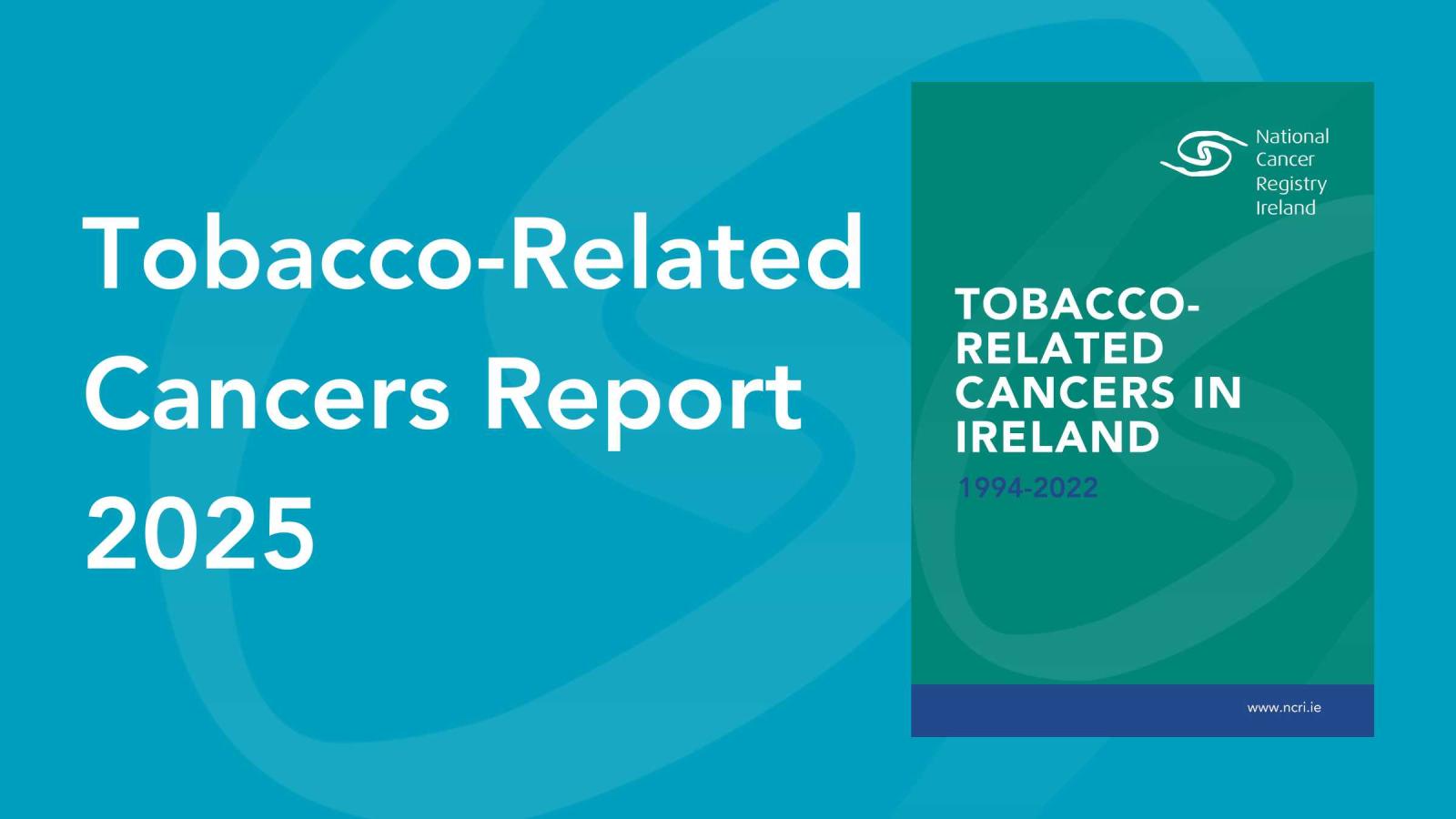New NCRI report reveals ongoing impact of tobacco-smoking on cancer in Ireland

The latest National Cancer Registry Report highlights the important and ongoing impact of tobacco smoking on cancer in Ireland. In 2022, on average, 10 people each day were diagnosed with a cancer caused by tobacco-smoking, according to the report which examines trends in tobacco-related cancers in Ireland from 1994 to 2022. Tobacco-smoking can cause at least 16 types of cancer including some of the most common cancer types like cancers of the lung, breast and bowel.
Key facts:
- In 2022, tobacco-smoking caused over 3,750 cases of cancer (or 14.7% of all invasive cancers (excluding non-melanoma skin cancers)). This means that in Ireland, on average 10 people each day were diagnosed with a cancer caused by tobacco-smoking.
- The risk of developing cancer due to tobacco smoking varies according to the cancer type examined, but the risk is greatest for cancers of the lung and larynx, and is also higher for bladder, pharyngeal and oesophageal cancers.
- Considering trends from 1994 to 2022, the incidence rate of most tobacco-related cancers was decreasing or stabilising. The mortality rate of most tobacco-related cancers was also decreasing or stabilising.
- For most tobacco-related cancers the proportion of people who survive their cancer for at least five years following diagnosis is improving.
What the numbers tell us about different groups:
- Tobacco-related cancers are, in general, more common among men.
- Tobacco-smoking increases the risk of three types of cancer specific to women –breast cancer, cervical cancer and an uncommon type of ovarian cancer (mucinous ovarian cancer).
-
Tobacco-related cancers are more common among those living in areas with greater social disadvantage compared to those living in more affluent areas.
Dr. Celia O’Hare, Aspire Fellow in Public Health Medicine and lead author of the NCRI report said, ‘Ireland has led internationally on public health efforts to reduce smoking. This has contributed to the declining or stable trends seen in most tobacco-related cancers. But more still needs to be done to reduce smoking - 17% of people in Ireland still smoke and smoking remains the leading preventable cause of cancer in Ireland.’
Prof. Deirdre Murray, Director of the National Cancer Registry added: "Understanding the trends in tobacco-related cancers is vital for enhancing public health awareness and shaping effective prevention strategies. Ireland has not yet achieved its national goal of reducing smoking prevalence to less than 5% by 2025. We need to sustain and enhance our public health interventions in order to reduce tobacco use and its impact on cancer rates."
Share this page